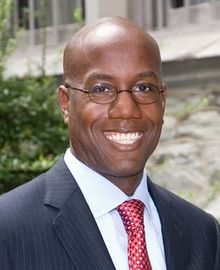
Temple has a new president, and we have the possibility of a fresh start.
Dr. Jason Wingard arrives at a crucial time for Temple University. Temple has endured an unprecedented combination of economic and public health crises. And yet – thanks in large part to the efforts of faculty, librarians, and academic professionals – Temple is on the cusp of emerging from the pandemic in sound financial shape, ready to reinvest in our students’ educational future.
But will Dr. Wingard make the right choices?
We know very little about our new President’s priorities. The Administration never publicly discussed who was being considered for the job. Nor were our faculty, librarians, or academic professionals given a chance to meet with the finalists – much less students, or representatives from the North Philadelphia community.
Once again, a public institution has made its decision behind closed doors.
When asked by a reporter from the Philadelphia Inquirer, Mitchell Morgan, chair of Temple’s board of trustees, refused to disclose Dr. Wingard’s salary.
This is not transparency.
Regardless, there is no doubt that Dr. Wingard is highly qualified for the position, and we look forward to working with him on the challenges Temple faces. We also recognize the historic nature of his appointment, as the first Black president in Temple’s more than 130-year history: a milestone that is long overdue.
Now that he has been appointed, Dr. Wingard faces some stark choices.
Will he double down on the tactics which brought him here, and keep the doors of decision making closed? Or will he invite in the faculty, librarians, and academic professionals – as well as students and community members who have a stake in how the University runs?
Will he continue to impose austerity budgets on Temple’s academic operations? Or will he reinvest this year’s return on our investment portfolio in instruction and research, to ensure we can fulfill Temple’s academic mission for years to come?
In his statement, Dr. Wingard mentioned that Temple boasts a “best-in-class network of faculty and academic resources.” He also stated that he believes Temple’s best days are still to come.
We couldn’t agree more – provided that President Wingard engages in dialogue with our world-class faculty, librarians, and academic professionals and gives us the resources we need to best serve our students.
